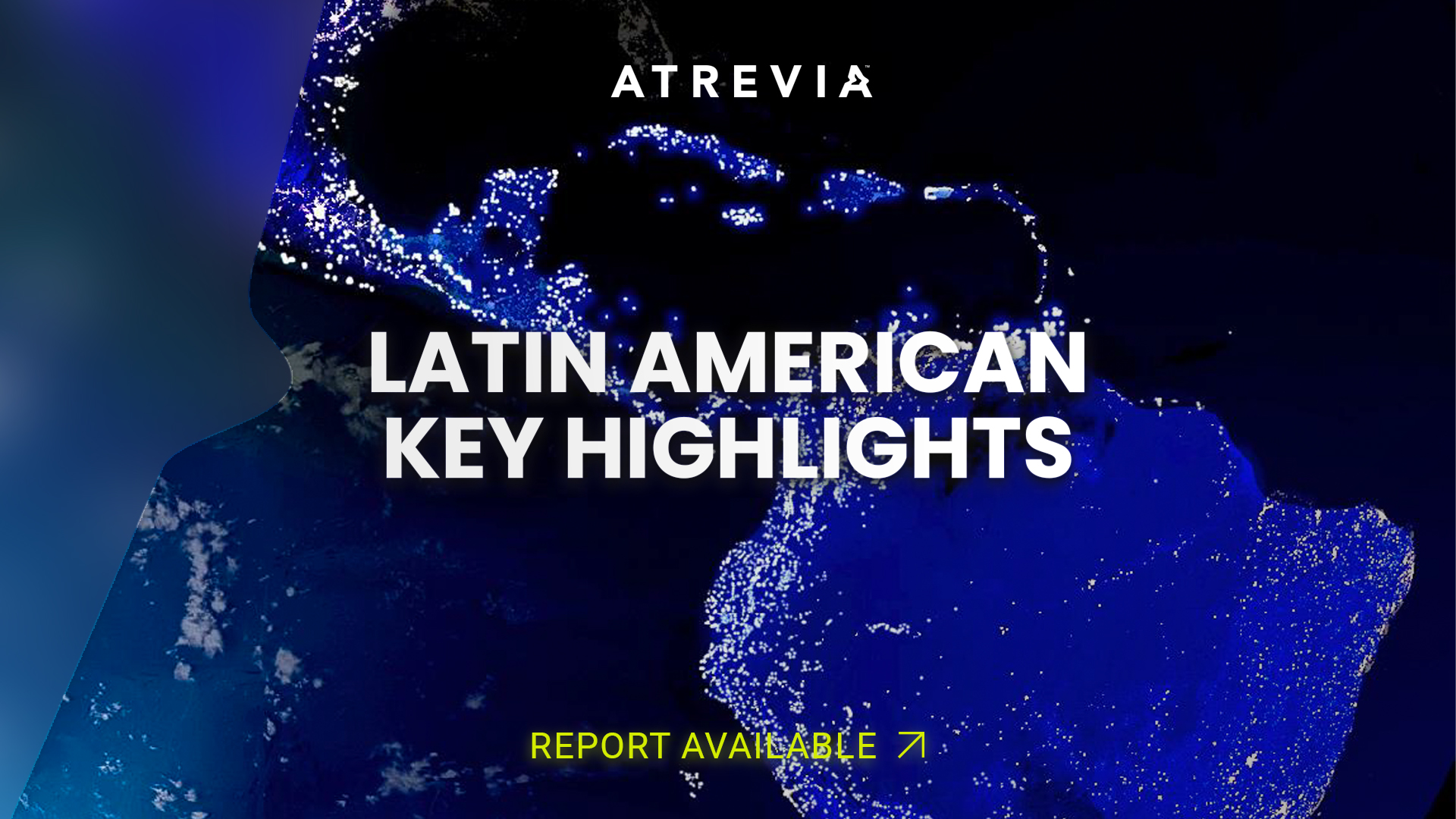
Latin American Keys is an informative and analytical summary regarding the political and economic situation in the Latin American region. These key takeaways, prepared monthly by ATREVIA´s Analysis and Research team, serve to be a useful tool in understanding the evolution of the political-institutional state of Latin America.
After several months focused on the United States and tariffs, attention has shifted back to domestic matters. The spotlight of debates has been on issues such as the 2026 budgets, pension system reforms, and social programs.
On the political front, Argentine President Javier Milei suffered both electoral and legislative setbacks, which generated market volatility, partially contained by signals of support from the U.S. Another right-wing figure, former Brazilian president Jair Bolsonaro, also had a grim month after being convicted for attempting a coup. Meanwhile, the country recorded negative monthly inflation, although the year-on-year figure has yet to allow a reduction of the high 15% interest rate.
In contrast, Peru’s Central Bank implemented a rate cut following August’s deflation. Chile’s monetary authority made the same decision thanks to price stability, in a polarized pre-electoral context where communist candidate Jeannette Jara and far-right leader José Antonio Kast are leading the polls.
Mexico’s historic judicial reform was consolidated with the swearing-in of new members elected by popular vote. For its part, the Executive presented its first Government Report and the 2026 budget, focused on spending and social projects. Meanwhile, Colombia’s Congress made progress on its budget, but the tax reform intended to finance its deficit remains under debate, facing resistance in the Senate.
In Uruguay, the 2026 budget has been questioned for raising the tax burden, although its approval is expected thanks to the ruling majority, while progress continues on signing the Mercosur-EFTA agreement. Similarly, Paraguay’s government under Santiago Peña presented Congress with a bill increasing social spending by 6%, in a legislature marked by the suspension of two senators over corruption.
Ecuador’s President Daniel Noboa eliminated the diesel subsidy, sparking protests across the country. The Indigenous movement called for a general strike, prompting the government to extend the state of emergency and impose curfews in five provinces.
Finally, the European Commission proposed the adoption of the agreement with Mercosur, creating the world’s largest free trade area after 25 years of negotiations. The goal is to have it gradually enter into force before 2026, requiring the backing of 15 member states, the approval of the European Parliament, and ratification by all states.